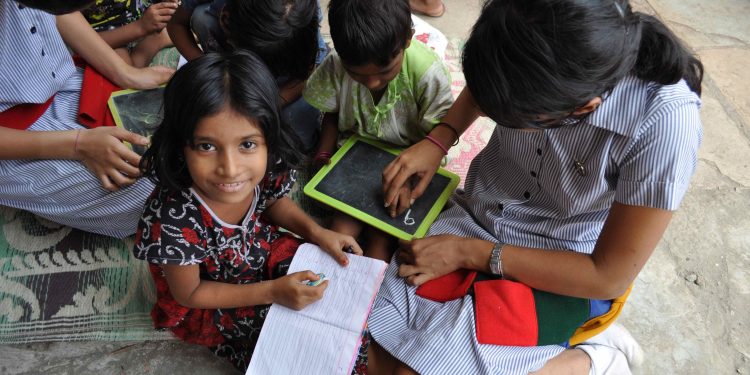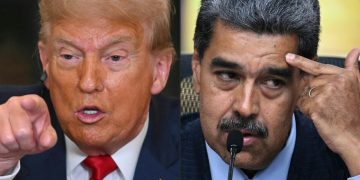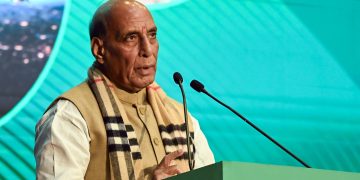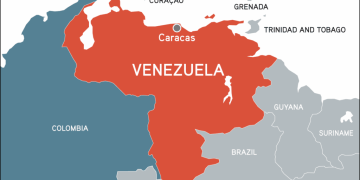 PSM Rao
PSM Rao
“One billion people worldwide have come out of poverty since 2000,” asserts ‘The Bill & Melinda Gates Foundation’s Goalkeepers: The Stories Behind the Data, 2018’ report. China and India played a key role in the achievement, the report avers.
More important, the report has rightly identified the crucial role that health and education have played in catalysing poverty reduction. The report reiterates the need, rather the duty, of governments to adequately spend on health and education. It wants Sub-Saharan Africa to follow the Indian example of curing poverty with health and education.
Health spending in India — by the Centre and state governments put together — has hovered about 1.3 per cent of the GDP against global average of 6 per cent. As a result of the poor government spending, 70 per cent of health expenditure is met by people themselves. The result: 7 per cent of people above the poverty line are pushed below the line each year, owing to heavy medical expenses.
Unscrupulous hospitals focus more on paying capacity of the patients than on the severity of disease and their cure. Rich and insured people are treated better while the poor and uninsured get no, or poor, treatment. Some hospitals feign treatment being given to patients even days after they are dead to fleece gullible relatives. Innumerable instances of wrong and unnecessary tests being recommended to patients, and of surgeries being conducted only to make money, have been reported.
Unscrupulous hospitals focus more on paying capacity of the patients than on the severity of disease and their cure. Rich and insured people are treated better while the poor and uninsured get no, or poor, treatment
The corporate hospital-pharma company-doctor nexus has driven risks and costs of healthcare to the extent that millions of middle class Indians descend into poverty upon falling sick; every year, more than 3.5 crore such people fall below the poverty line.
While medical expenses crush people, the health sector flourishes as a commercial enterprise. There are 10.4 lakh healthcare enterprises, small and very big put together. The industry was worth $160 billion in 2017 and it is poised to grow to $280 billion by 2020. Foreign Direct Investment the sector received between 2000 and 2017 was $4.34 billion. In 2016, the number of medical tourists was 2,00,000 against 1,30,000 a year ago, which means the healthcare sector is attractive not only to wealthy Indians but also to the foreign rich.
With the stated objective of changing the situation and strengthening healthcare, the Prime Minister September 23 launched the Pradhan Mantri Jan Arogya Yojana-Ayushman Bharat (PMJAY-Ayushman Bharat). The scheme targets 100 million families, which means 500 million persons named in the socio-economic caste census of 2011. It covers 1,300 diseases with insurance cover of Rs 5 lakh per family.
The efficacy of the programme is in doubt, although it is different from existing health schemes. Telangana, Odisha, Delhi, Kerala and Punjab are not willing to implement the scheme and are questioning its feasibility; they claim their own health schemes are superior to PMJAY-Ayushman Bharat.
It is not a universal healthcare system. It excludes a large number of people, tagging them ‘non-poor’ even after witnessing the so-called ‘non-poor’ becoming poor following one or two major ailments in the family.
Turning to educational spending and its outcomes, government spending has been falling over the years, while educational standards are declining steeper than that of the health sector. In 2012-13, education expenditure was 3.1 per cent of the GDP, the economic survey 2017-18 notes. It fell in 2014-15 to 2.8 per cent and registered a further drop to 2.4 per cent in 2015-16. The subsequent slight rise to 2.6 per cent since 2016-17 is not an enviable achievement; it is nowhere near the 6 per cent of GDP target accepted way back in 1966 on the recommendation of the Kothari Commission, which had specified that level to be achieved by 1985-86 itself.
Together with low spending, deteriorating standards owing to poor governance are evident in the education sector as well.
The Annual Status of Education Report (ASER) has been mirroring the deteriorating educational standards year after year. ASER’s 2017 report says: “About 25 per cent of students in the age group 14-18 are unable to read basic text fluently in their own language; more than half struggle with division (3 digit by 1 digit) problems. Only 43 per cent are able to do such problems correctly. Even among youth in this age group who have completed eight years of schooling, a significant proportion still lack foundational skills such as reading and maths.”
There could be several outside-the-school, socio-economic problems pushing drop-out rate; but, one reason within the school, relating to teachers, is the most disgusting. Many teachers are incompetent and also cruel to their students. An ASER policy brief noted that teachers were not following child-friendly practices as is evident from analysis of data on 850 hours of classroom observations. Teachers were not smiling, laughing or joking at least with some students in classrooms.
The government’s own publication, ‘Child protection: A handbook for teachers’ by ministry of women and child development, has stated: “Many working children have pointed out corporal punishment as reason for running away from school and also from their families and homes.” The same report further asserts: “Almost all schools inflict corporal punishment on students . . . In the name of discipline, children are known to have had their bones and teeth broken, their hair pulled out and forced into acts of humiliation.” All this suggests the system’s failure to discipline the guilty.
It is time governments stopped neglecting health and education. They cannot eternally leave these sectors at the mercy of market forces. Politicians should not fit these two sectors into populistic schemes they hurriedly work out and announce keeping an eye on the ensuing elections. It would be better if the governments understand that all their other poverty alleviation programmes cannot be efficacious without adequate controls and investment in education and health. Development of these two sectors is the primary responsibility of the government. It should not delegate its control to the private sector, which works purely for profit.
The writer is a commentator on social and economic issues and a development economist based in the US.






































